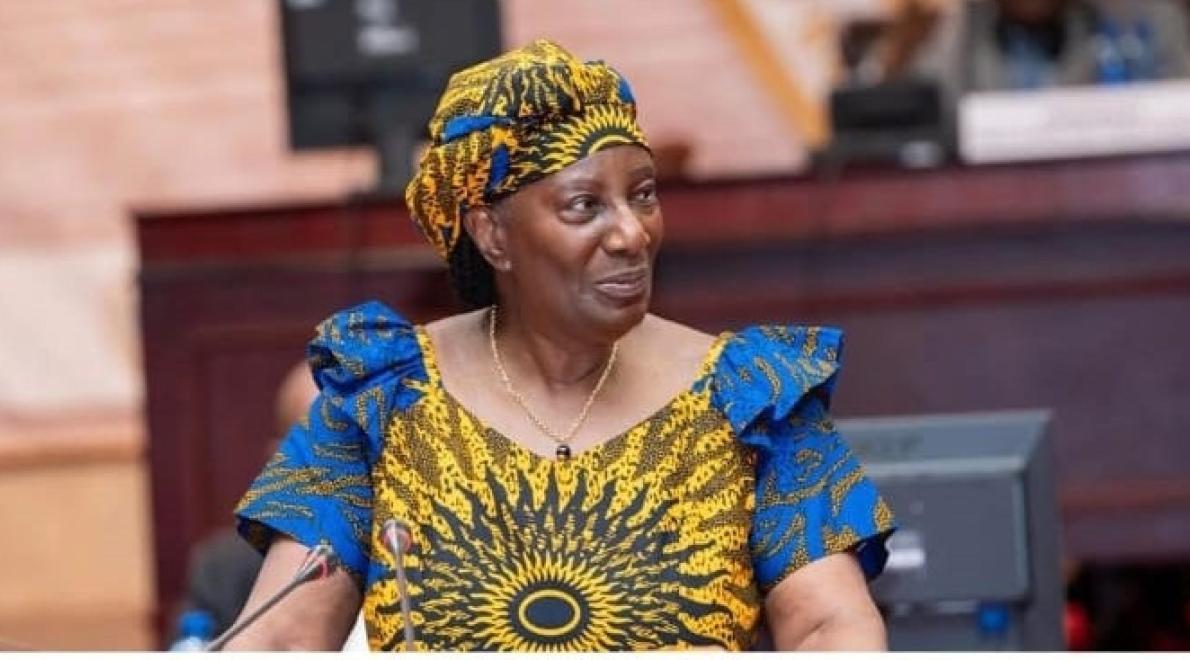Image



Johannesburg, South Africa – At the opening ceremony of the Pan African Parliament Permanent Committee Sittings on February 24, 2025, Dr. Barryl A. Biekman, Chair of the Executive of the African Union African Diaspora High Council, called for deeper integration between Africa and its global diaspora.
Before a distinguished audience that included Chief Fortune Charumbira, President of the Pan African Parliament, the Judge President of the African Court on Human and People’s Rights, Justice Imani D. Aboud, and Thandi Moraka, South Africa’s Deputy Minister of International Relations and Cooperation, Dr. Biekman emphasized the urgent need for unity, justice, and reparatory action to heal the wounds of the past and build a sustainable future for Africa and its Diaspora.
The Pan African Parliament shared a post highlighting Dr. Barryl Biekman’s address at the Sitting of Permanent Committees. As the Board Chairperson of the African Union African Diaspora Sixth Region High Council, she emphasized the long-awaited inclusion of the African diaspora in Pan-African activities. She also acknowledged the African Union’s focus on justice and reparations for Africans and people of African descent.
Honoring the Past, Demanding Justice
Dr. Biekman asked attendees to close their eyes and imagine the trauma of enslavement—its brutality, its dehumanization, and its lasting consequences. Speaking as a direct descendant of enslaved people taken from Africa to Suriname, South America, she underscored the enduring pain of that history and the imperative for reparatory justice.
Imagine what could have been if our ancestors had not been stolen, if their humanity had not been reduced to commodities labeled 'Negro boy' or 'Negro girl.' Would we be here today discussing reparations?"
Dr. Biekman described the horrors of enslavement, referencing the Code Noir and other oppressive legal systems that sought to strip Africans of their identity, family structures, and dignity. Yet, she also celebrated the resilience of the historical African Diaspora, who, despite generations of oppression, have remained steadfast in their African identity and their pursuit of justice.
The Sixth Region: Strengthening the Connection Between Africa and Its Diaspora
Referencing Article 3(q) of the African Union Constitutive Act, adopted in Maputo, Mozambique (2003), Dr. Biekman reiterated the commitment to integrating the African diaspora as the Sixth Region of the African Union. She described the AU African Diaspora High Council as a “Leave No Community Behind” governance model born from 125 years of struggle, dating back to the First Pan-African Congress of 1900 and resistance to the Berlin Conference (1884-1885).
She urged the Pan African Parliament to take concrete steps toward inclusion, calling for the establishment of a Special Diaspora Committee and greater diaspora participation in trade, justice, gender, and legal committees.
She emphasized that the African diaspora extends beyond CARICOM nations to include Brazil, Colombia, Panama, the United States, Canada, Japan, China, Russia, Palestine, India, Australia, Israel, and Europe—highlighting the need for broader representation in African affairs.
A Call for Action: From Survival to Strength, From Pain to Power. "We must capitalize on the potential of our people across the globe to build a stronger, more integrated Africa" Dr. Barryl Biekman
Asserting that the fight for justice is far from over, Dr. Biekman called on the Pan African Parliament to take decisive action in addressing the lingering effects of slavery, colonialism, and neo-colonialism.
"Let us unite to dismantle the lasting vestiges of oppression. Let us reclaim our stolen artifacts, our ancestral lands, and our rightful economic resources. Let us ensure that the voices of the diaspora resonate in every global forum," Dr. Biekman declared.
She also highlighted climate change, economic marginalization, and exploitation as pressing issues affecting people of African descent worldwide, urging African leaders to work alongside the diaspora in creating solutions.
A Unified Future: The Power of Pan-Africanism
Dr. Biekman’s address concluded with a powerful vision of unity, resilience, and Pan-Africanism in practice: "Together, we will build a stronger, more integrated Africa. Together, we will achieve reparatory justice. Together, we will honor the sacrifices of our ancestors and forge a future worthy of their legacy. Let us transform the pain of our past into the undeniable power of our future."
The speech was met with enthusiastic applause, reflecting the growing momentum for stronger Diaspora engagement in shaping Africa’s future.